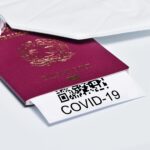Table of Contents
- Introduction: Steering Clear of Permanent Residence Application Pitfalls
- IRCC’s Insight: Common Errors to Avoid
- Addressing Inadmissibility Issues in Your PR Application
- Navigating NOC Mismatches: Ensuring Accuracy in Your Application
- The Peril of Incomplete Applications: A Recipe for Refusal
- Maintaining Document Authenticity: A Non-Negotiable Requirement
- Correcting Mistakes and Preventing Delays
- Essential Checklist Items to Bolster Your Application
Introduction: Steering Clear of Permanent Residence Application Pitfalls
Applying for permanent residence in Canada can feel like navigating a complex maze. The process requires meticulous attention to detail, a thorough understanding of eligibility criteria, and a proactive approach to avoiding common pitfalls. Recognizing these potential errors is paramount to ensuring a smooth and successful application journey. This article delves into the insights shared by Immigration, Refugees and Citizenship Canada (IRCC) regarding frequent mistakes made in PR applications, offering guidance on how to circumvent these issues and significantly increase the chances of a positive outcome. The goal is to avoid devastating PR application rejections by helping you understand the common pitfalls.
IRCC’s Insight: Common Errors to Avoid
IRCC has identified several recurring errors that frequently lead to application refusals. Addressing these proactively can significantly bolster your chances of approval. These errors often stem from misunderstandings of eligibility criteria, oversights in documentation, or inaccuracies in the information provided. Recognizing these potential stumbling blocks is the first step toward mitigating their impact.
- Inadmissibility Issues: Failing to address potential inadmissibility concerns related to criminal history, security risks, or health issues.
- NOC Mismatches: Providing inaccurate or inconsistent information about your occupation, leading to a mismatch with the National Occupational Classification (NOC) requirements.
- Incomplete Applications: Submitting applications with missing documents or unfilled sections, causing delays or outright rejection.
- Document Authenticity: Providing fraudulent or altered documents, which can have severe consequences, including application refusal and potential bans from future immigration attempts.
Addressing Inadmissibility Issues in Your PR Application
Inadmissibility can be a significant hurdle in the Canadian immigration process. Factors that can render an applicant inadmissible include criminal history, security concerns, health issues, and misrepresentation. Transparency and proactive disclosure are crucial when addressing such issues. For instance, if you have a past criminal record, you might need to apply for criminal rehabilitation or a temporary resident permit, depending on the severity and age of the offense. Similarly, medical conditions that could pose a public health risk or place excessive demands on Canada’s healthcare system may require detailed medical assessments and potential mitigation strategies. It’s essential to consult with an immigration expert to understand the specific requirements and processes for addressing inadmissibility concerns effectively. If there are doubts about this inadmissibility issue, always seek help.
Navigating NOC Mismatches: Ensuring Accuracy in Your Application
The National Occupational Classification (NOC) system plays a vital role in assessing your eligibility for various immigration programs. A mismatch between your claimed occupation and the actual duties you perform can lead to application refusal. It’s imperative to carefully review the NOC descriptions and ensure that your job title and responsibilities align with the specified criteria. Providing detailed and accurate information about your work experience, including a comprehensive job description and supporting documentation, is essential. If the NOC code you initially selected doesn’t accurately reflect your role, be prepared to provide a clear explanation and supporting evidence to justify your choice. Accurate NOC information is necessary to avoid devastating PR application rejections.
One common pitfall is simply selecting a NOC code that sounds similar but doesn’t genuinely match the actual responsibilities of the job. For example, an individual might choose a more prestigious-sounding NOC code that doesn’t accurately reflect their day-to-day tasks. This discrepancy is usually flagged by IRCC officers, who cross-reference job duties with the NOC description. To avoid this, applicants should meticulously document all aspects of their job, compare these to the NOC database, and select the code that most closely aligns with their actual role.
The Peril of Incomplete Applications: A Recipe for Refusal
Submitting an incomplete application is a surefire way to encounter delays or, worse, rejection. IRCC requires specific documents and information to assess your eligibility, and missing elements can significantly hinder the processing of your application. Before submitting, double-check that you have included all required forms, supporting documents, and any additional information requested by IRCC. Use the document checklist provided by IRCC for your specific application stream as a guide. Furthermore, ensure that all forms are filled out completely and accurately. Missing information, even seemingly minor details, can lead to processing delays or outright refusal. Always take the time to meticulously review your application before submission to avoid these easily preventable errors. Having all the applications complete is an essential checklist to avoid devastating PR application rejections.
Many applicants underestimate the importance of including every single document listed on the application checklist, assuming that some documents are less important or that IRCC can obtain them independently. However, IRCC expects applicants to provide all necessary documentation to demonstrate their eligibility. Failure to do so can result in the application being returned as incomplete, setting your immigration journey back by months.
Maintaining Document Authenticity: A Non-Negotiable Requirement
Providing fraudulent or altered documents is a serious offense that can have severe consequences, including application refusal, a ban from future immigration attempts, and potential legal repercussions. It is imperative to ensure that all documents submitted are genuine and unaltered. This includes educational credentials, employment records, and any other supporting documents. If you are unsure about the authenticity of a document, seek clarification from the issuing institution or organization. Honesty and transparency are paramount throughout the application process. Any attempt to deceive immigration authorities can have long-lasting and detrimental effects on your immigration prospects. This is an important section to help avoid devastating PR application rejections, by making sure all documents are real. This seems so simple, but it can be so true.
IRCC employs sophisticated methods to detect fraudulent documents, including cross-referencing information with issuing institutions and international databases. Any discrepancies or inconsistencies can raise red flags and trigger further investigation. Even seemingly minor alterations or inconsistencies can cast doubt on the authenticity of the document and jeopardize the entire application.
Correcting Mistakes and Preventing Delays
If you discover an error in your application after submission, it is crucial to take immediate steps to correct it. Contact IRCC as soon as possible and provide the corrected information, along with a clear explanation of the error. While there is no guarantee that the correction will be accepted without consequences, proactively addressing the mistake demonstrates honesty and a commitment to providing accurate information. Depending on the nature of the error, IRCC may request additional documentation or clarification. It’s important to comply with these requests promptly and thoroughly. Ignoring errors or attempting to conceal them can lead to more serious consequences. Being able to correct mistakes can help you avoid devastating PR application rejections, by being honest and upfront about them.
Essential Checklist Items to Bolster Your Application
To increase the likelihood of a successful PR application, consider the following essential checklist items:
- Thoroughly review eligibility criteria for your chosen immigration program.
- Gather all required documents and ensure they are authentic and unaltered.
- Complete all application forms accurately and completely.
- Double-check all information for consistency and accuracy.
- Address any potential inadmissibility concerns proactively.
- Seek professional guidance from an experienced immigration consultant or lawyer.
Talk to us to find out more. ->
The content above is not intended to provide legal advice or opinions of any kind and may not be used for professional or commercial purposes.







